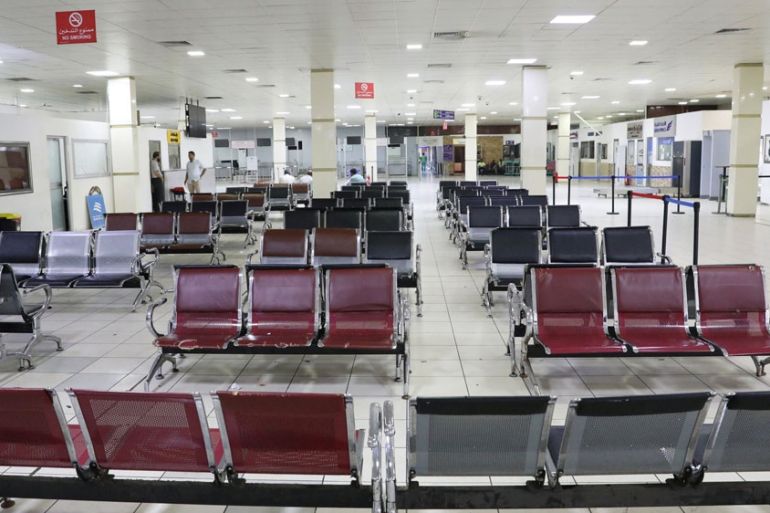Libya: Rocket fire targets Tripoli airport despite truce
Several rockets hit the perimeter of Mitiga International Airport without causing casualties.

The Libyan capital’s airport came under rocket fire just days after reopening following a UN-backed ceasefire between rival armed groups vying for influence in the oil-rich country.
The Tuesday night attack underscored the fragility of the latest peace push in the North African nation, which has been beset by turmoil since the fall of former President Muammar Ghadafi in 2011.
Several rockets hit the perimeter of Mitiga International Airport on the eastern outskirts of Tripoli without causing casualties.
Flights were diverted to Misrata, some 200km east of the capital, the civil aviation authority said.
Mitiga airport had only reopened on Friday after it was forced to close for a week because of deadly clashes between rival militias in and around Tripoli.
The fighting has killed at least 63 people and wounded 159 others – mostly civilians – since August 27, dousing hopes of elections being held this year.
‘Radical measures’
The UN-brokered ceasefire announced on September 4 has largely been respected, but witnesses reported brief clashes in the south of the capital on Tuesday night.
|
|
The fragile truce includes “radical measures” to restore security in Tripoli that took effect on Wednesday, the UN Support Mission in Libya (UNSMIL).
The mission said on Twitter a “special meeting” was taking place on security arrangements.
It was attended by the head of the Tripoli-based Government of National Accord (GNA), Fayez al-Sarraj, as well as military commanders from across western Libya and UN envoy Ghassan Salame.
UNSMIL said the meeting was tackling “how best to consolidate the … ceasefire agreement and the establishment of a monitoring and verification committee”.
It also said the meeting was focusing on “the formation of a committee on security arrangements”.
A UN-brokered agreement signed in Morocco in December 2015 establishing the GNA brought hopes of an easing of the chaos that followed Libya’s 2011 revolution.
But divisions remain between the GNA and rivals, including military strongman Khalifa Haftar who is based in the east and refuses to recognise the administration’s authority.